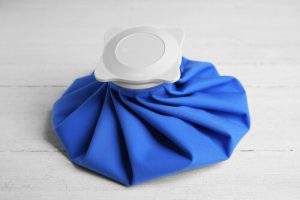You may be visiting our website because you are planning on getting a nose job surgery and have done your research. Reading about this type of plastic surgery procedure mentioned that you must expect swelling after rhinoplasty, but did it say for how long? Well, we hope that by reading this article you find the answers that you are looking for and you will have an idea about how rhinoplasty works, how your recovery would look like after the procedure, and ways on how to reduce swelling after rhinoplasty.
What is rhinoplasty?
The way to answer all your questions should start with knowing what the procedure is all about. You may have read this during one of your researches, but just to be clear, rhinoplasty is the plastic surgery that alters the function and appearance of your nose. Also called a nose job surgery, rhinoplasty not only corrects the physical look and profile of your nose, but it can also improve a patient’s breathing and respiration by correcting some deformities inside the nose caused by accident, trauma, or congenital anomalies. This characteristic makes rhinoplasty a unique plastic surgery procedure because it is not for aesthetic purposes alone; it is also for correcting and solving medical conditions like sleep apnoea, deviated septum, or cleft palate.
How is rhinoplasty performed?
 There are two types of rhinoplasty techniques, the closed and the open rhinoplasty. Both involve incisions inside the nose, but what makes open technique different is that it also requires a small external incision in between your nostrils to visualise the vital parts of the nose that need correction. The whole procedure can be performed either under local anaesthesia with sedation or general anaesthesia. Of course, patients who have general anaesthesia may be too anxious, or the procedure may be more complicated than it seems that it needs a longer and higher dose of anaesthesia for the patient to feel stable and relaxed. After the surgery, your doctor may recommend you to stay overnight if close monitoring is deemed necessary for the first few hours post-op, or he may allow you get discharged provided that a designated driver will take you home.
There are two types of rhinoplasty techniques, the closed and the open rhinoplasty. Both involve incisions inside the nose, but what makes open technique different is that it also requires a small external incision in between your nostrils to visualise the vital parts of the nose that need correction. The whole procedure can be performed either under local anaesthesia with sedation or general anaesthesia. Of course, patients who have general anaesthesia may be too anxious, or the procedure may be more complicated than it seems that it needs a longer and higher dose of anaesthesia for the patient to feel stable and relaxed. After the surgery, your doctor may recommend you to stay overnight if close monitoring is deemed necessary for the first few hours post-op, or he may allow you get discharged provided that a designated driver will take you home.
Rhinoplasty recovery period
Now that you know what rhinoplasty is and how it is performed, you start to wonder what would happen after the surgery. What can a patient expect after rhinoplasty surgery? Well, it is common that immediately after the operation, once the anaesthesia starts to wear off, pain and discomfort will be present. These complaints are normal as surgery is an invasive procedure that needed stitches and sutures. Your doctor would prescribe medications to alleviate the discomfort.
 You should also expect bruising and swelling after rhinoplasty, and the latter may stay on and off up to an entire year. Yes, that correct! Some patients would complain to their doctors that the final results of their surgery are still hard to appreciate even after months from their surgery. You may also notice uneven swelling after rhinoplasty, especially along the nostrils or nasal tip. The rhinoplasty surgeon clearly understands that situation. He should calmly and convincingly explain to you that while it is taking too long for you to see the final outcome of your surgery, you can rest assured that the surgery went well and the swelling will eventually subside.
You should also expect bruising and swelling after rhinoplasty, and the latter may stay on and off up to an entire year. Yes, that correct! Some patients would complain to their doctors that the final results of their surgery are still hard to appreciate even after months from their surgery. You may also notice uneven swelling after rhinoplasty, especially along the nostrils or nasal tip. The rhinoplasty surgeon clearly understands that situation. He should calmly and convincingly explain to you that while it is taking too long for you to see the final outcome of your surgery, you can rest assured that the surgery went well and the swelling will eventually subside.
How to relieve swelling after rhinoplasty
If you have undergone nose job surgery and you need help in reducing the bruising and swelling after rhinoplasty, here are some tried-and-tested tips on how to alleviate these complaints.
Follow your doctor’s post-surgical instructions
Doctors provide each rhinoplasty patient with detailed post-surgical instructions for recovery, including wound care, work restrictions, and activity limitations. They also give you prescriptions of all the medications you need to take or apply to the wound. It also requires you to have your follow-up check-up with him after a few weeks. Follow these orders carefully. Your rhinoplasty surgeon should be available to answer any of the queries you may have throughout the recovery period, so you have to reach out if you need help or if you have a concern.
Avoid Certain Medications
Avoid blood-thinning medications, like aspirin, heparin, or warfarin, before surgery and during your recovery period. These drugs will affect the healing process, and it would also increase your risk of excessive bleeding during and after the surgery. If you are taking a blood thinner prescribed by your PCP, let your surgeon know during the initial assessment (as mentioned earlier), so they will know how to keep you safe during and after the operation. There are also some supplements and herbal remedies can increase bleeding and thin the blood. Tell us about any supplements, medications, or herbal products you use as they may interact negatively with the drugs we administer and order during and after the surgery.
 Use ice
Use ice
Ice application over the surgical site can reduce swelling of your nose, but it can only be used according to your doctor’s orders. You can use it for a few minutes with 30 minutes to 1-hour interval for the first few days. Practice this and apply ice packs to your cheeks and forehead more than a few times a day for the first week, and you can be sure that it will help lessen the swelling after rhinoplasty.
Elevate
By using the law of gravity, you can use elevation of the surgical site to keep it from swelling up. Because the surgery is quite an invasive procedure, the body compensates and protects the body from infection, causing fluid and blood to surround the area more. This creates post-op swelling and bruising. Keeping your head elevated higher than the heart has shown evidence that it can reduce swelling. This is the reason why many rhinoplasty patients sleep in a recliner for the first week or two after surgery.
Don’t Smoke
Avoid smoking for a few weeks before and after surgery. We all know that smoking is no good, plus the fact that nicotine will affect the body’s natural healing process. If a patient smokes and, in turn, prolongs the healing, the risk of infecting the site increases and may put the patient’s life in danger.
Be Patient
Our best advice for dealing with swelling and bruising after rhinoplasty is simple, be patient. Swelling isn’t fun, but it will resolve, often in just a few weeks. Bruising is uncommon and resolves quickly. Give your body time to heal after surgery. It will happen, but it does take time. If you’re unsure of your appearance after rhinoplasty, be patient. Many patients find that once the swelling fully resolves, they love their new look.


Recent Comments